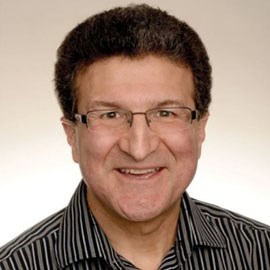The person who exemplified the power of a witness passed away on Saturday at the age of 87.
Elie Wiesel was not simply a Holocaust survivor, he was a great teacher, a man of passion and one who left the world much better than he found it. He calls upon all of us to continue his mission.
Wiesel was born in Transylvania in 1928 to devout Jewish parents. In May of 1944 their world was turned upside down when they found themselves in the Auschwitz death camp. Elie lost his mother and little sister upon arrival. He and his father survived the first selection by lying about their ages, convincing the Nazis that they could work. Though he lost his father near the end of the war, young Elie somehow managed to survive.
What Wiesel went through makes no sense. There is no reason why humans should treat other people with such brutality. There was no reason why a sensitive teenager should have survived while death was all around him. Yet Wiesel did survive, and he was left to reason through the trauma and go on living his life.
Wiesel discovered that he had a gift for languages and that he was a great writer.
After the war, he ended up in France where he studied at La Sorbonne and became a journalist. He waited ten years to write about his concentration camp experience and in 1958 he published the first edition of Night, or La Nuit, in French.
At first he had difficulty finding a publisher. The world seemed to have very little desire to understand the inhumanity people were capable of, but Wiesel persisted and Night has been by far his most successful book. Today it is translated into 30 languages, millions of copies have been printed, and it is considered a classic piece in Holocaust literature.
I read an earlier translation of Night in high school and I never forgot it. It became a reference point for me as I journeyed through life.
I recall visiting family in Germany as a young man and thinking, "These are such wonderful people. How could such a crime against humanity have taken root here?" I pondered that question for a number of years and put my thoughts to work in creating a genocide studies course. Every day the words of Wiesel inspire me: "For the dead and the living, we must bear witness."
I study Night with my students every year. The way that Wiesel summarizes his story into barely 100 pages and yet remains true to his experience is masterful. Young people relate to a person their age going through unimaginable suffering and are stirred to the same resolve to make "never again" a reality.
Wiesel, I am sure, would take comfort in this. This was his own mission in life.
He understood that genocide was not only a thing that happened under Nazi rule in the 1940s, it is a crime against humanity that we must all refuse to accept.
Wiesel spoke out for the innocent victims of genocide, from Armenia to Bosnia to Darfur and beyond. He never stopped teaching, and the words of a person who was not just a survivor, but a witness speaking on behalf of those who did not survive, inspired millions to join him in his efforts.
Elie Wiesel has advised American presidents and other world leaders. He has been given many honours, including the Nobel Peace Prize.
Perhaps the greatest honour we can give him, however, is to continue his mission, to continue to bear witness as we strive to make a world free of genocide a reality.



